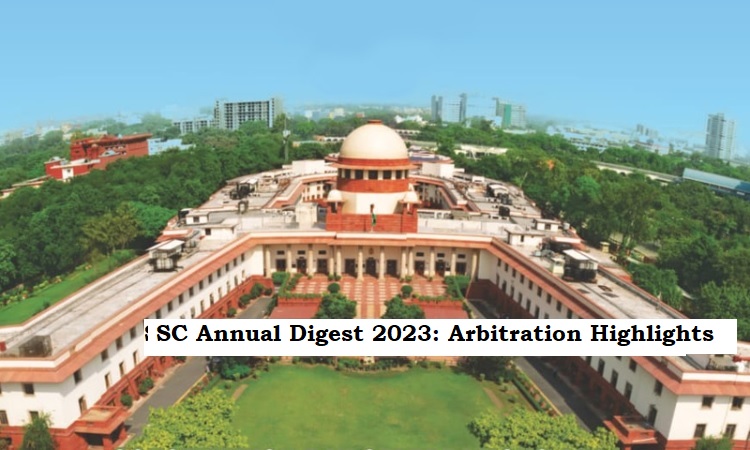


In the case of Tata Sons Pvt. Ltd. v. Siva Industries and Holdings Ltd., a significant ruling was made by the Supreme Court in its Annual Digest for the year 2023 regarding the applicability of the 12-month time limit under Section 29A of the Arbitration and Conciliation Act. The court clarified that this time limit does not extend to international commercial arbitration, marking a crucial distinction in the treatment of domestic and international arbitration proceedings.
Section 29A of the Arbitration and Conciliation Act imposes a 12-month time limit for the completion of arbitral proceedings. However, in the context of international commercial arbitration, the Supreme Court held that this provision does not apply. This decision underscores the court's recognition of the unique nature of international arbitration and the need for flexibility in its proceedings. By exempting international commercial arbitration from the rigid time constraints imposed by Section 29A, the court aims to facilitate a more efficient and adaptable resolution process for cross-border disputes.
Additionally, the Supreme Court addressed another significant issue related to the 2015 Amendment to the Arbitration and Conciliation Act. The ruling clarified that the Amendment does not have retrospective applicability in cases where the arbitration notice was issued before the Amendment came into effect, even if the Section 11 application was filed after the Amendment.
The 2015 Amendment brought about several changes to the arbitration landscape in India, aiming to streamline and expedite the arbitration process. One key change was the introduction of a time limit for the appointment of arbitrators under Section 11 of the Act. Despite the overarching objective of the Amendment to enhance efficiency, the Supreme Court's ruling recognizes the importance of respecting the circumstances existing at the time of initiating arbitration proceedings.
In essence, the court held that the 2015 Amendment would not affect arbitration proceedings initiated with a notice issued before the Amendment's enactment. This decision emphasizes the principle of legal certainty and the preservation of parties' expectations based on the legal framework in place at the time of initiating the arbitration process.
The case of Shree Vishnu Constructions v. Engineer, referenced in the Annual Digest, provides further clarity on the interplay between the 2015 Amendment and the timing of arbitration proceedings. The court's ruling reiterates that the Amendment does not have retroactive applicability, reinforcing the idea that parties should not be subject to legal changes introduced after they have already initiated the arbitration process.
In summary, the Supreme Court's Annual Digest for 2023 highlights pivotal decisions in the realm of arbitration law. The exemption of international commercial arbitration from the 12-month time limit under Section 29A recognizes the distinctive features and complexities associated with cross-border disputes. Simultaneously, the court's stance on the retrospective applicability of the 2015 Amendment ensures a fair and balanced approach, upholding the expectations and rights of parties engaged in arbitration proceedings initiated before the enactment of the Amendment. These rulings contribute to the evolution of arbitration jurisprudence in India, fostering an environment that accommodates the nuances of both domestic and international arbitration.
TAGS: Legal certainty Efficiency in arbitration Cross-border disputes Arbitration jurisprudence